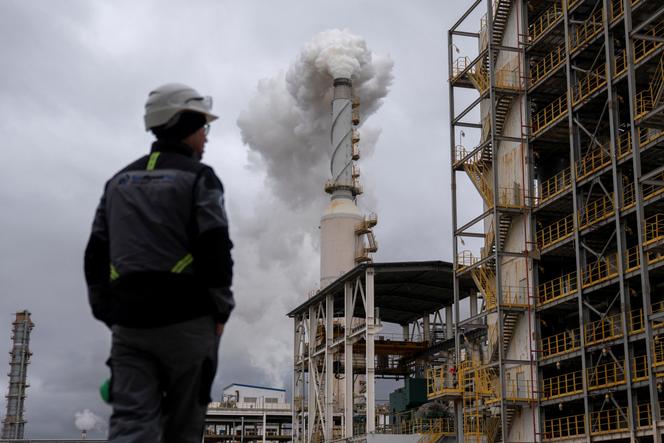


It's the elephant in the room and it's a big one. Fossil fuels (coal, oil and gas) are at the origin of around 80% of greenhouse gas emissions, making them the main culprits in the climate crisis currently threatening humanity. Yet, over the last three decades – by some incredible sleight of hand – they have never been at the forefront of climate negotiations. We have had to wait until the 28th UN climate change Conference of the Parties (COP28), due to open on November 30 in Dubai (United Arab Emirates), for the subject of a complete phase-out of all fossil fuels to be put on the agenda.
Proof of this taboo is the fact that the word"fossil" did not appear in any COP decisions adopted at the conclusion of a COP until 2021. Nor does it appear in the 1997 Kyoto Protocol or the 2015 Paris Agreement, the two milestones of climate diplomacy. "When we were preparing the Paris Agreement, we tried a lot of options, including those of a gradual phase-out of fossil fuels," said Laurence Tubiana, one of the agreement's architects. "But this was met with a complete deadlock. That's why we opted for the term 'greenhouse gas emissions'."
The agreement calls for countries to make voluntary commitments to reduce their emissions, in order to limit global warming to below 2°C – and if possible to 1.5°C. Emissions, as well as each country's carbon accounting, are pivotal factors in the negotiation process. "From the outset, emissions have been measured based on where they are burned, not where they are produced," said Romain Ioualalen, of the NGO Oil Change International. "This has helped to mask the issue of fossil fuels: Since the source of emissions was not covered by the framework, we didn't talk about it."
The very nature of these discussions also explains the difficulty of tackling this fossil fuel issue head-on. Generally speaking, governments are particularly reluctant to commit to measures in international agreements that have a direct impact on their national policies. Since the establishment of the United Nations Framework Convention on Climate Change (UNFCCC) in 1992, countries have primarily worked towards agreement on broad objectives, with the notion that each country would then be free to decide how to implement them.
"In a way, it makes sense for countries to agree on a temperature cap or an emissions reduction target on the understanding that France will apply it very differently to Australia, which will apply it differently to Russia," said Joanna Depledge, an international climate change negotiations expert at Cambridge University. In an article published in 2021, researchers point out that "a global negotiation process involving nearly 200 countries and thousands of participants is by nature cumbersome, subject to high transaction costs, and compromised by political grandstanding and wider geopolitical game-playing."
You have 65% of this article left to read. The rest is for subscribers only.
